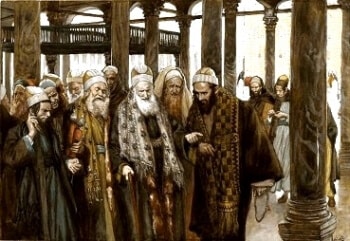
Once I attended a communications seminar. One of the things I remember is that the messages we deliver are more about our tone of voice, the expression on our faces, and our mannerisms than the words we speak and the ideas we put forth. They told us, as I remember, that only about 20% of communication is about the words that come out of our mouths.
Father Bernie told us about an experience he had going to confession—this was before he was ordained. It was a moment that he never forgot. The priest was grouchy, judgmental, and insensitive. Father Bernie said that he left the confessional angry. He complained to God, “Why did you lead me to that priest?” God answered: “Because I wanted to show you how not to hear confessions.” The confessor, whom Father Bernie labelled “Father Sour Grapes,” may have spoken truthful words and recited the absolution prayer perfectly, but his words were not the message that he delivered.
God taught Father Bernie about how to be a priest by showing him what not to do.
In today’s gospel passage we listen to Jesus tell his disciples how not to be. He told them to take a close look at the religious “role models” of the day, and make sure they didn’t imitate them (Matthew 23:1-12).
“The scribes and the Pharisees have taken their seat on the chair of Moses. Therefore, do and observe all things whatsoever they tell you, but do not follow their example. For they preach but they do not practice.”
I wonder if the Pharisees ever smiled. Do you think their voices had a gentle, merciful tone to them? Do you think their feet were muddy from helping the down and out people of the community? I wonder if they ever stooped down to talk to a small child or if they always stood in a “towering over others” posture. Would you find it easy making friends with a typical Pharisee?
On the other hand, what kind of role model was Jesus? What did his face look like? Did he have a compassionate tone to his voice? Were his feet dirty? Did he stoop a lot? Would he have been the kind of person you would like to have as a friend?
What characterized the typical Pharisee or scribe?
“They tie heavy burdens hard to carry…but will not lift a finger to move them. All their works are performed to be seen. They widen their phylacteries and lengthen their tassels. They love places of honor at banquets…and the salutation ‘Rabbi.’”
Jesus seemed the opposite of this description. He came to lift burdens and set people free. He did all he could to shun publicity. He did not wear fancy religious clothes or insist people address him by a formal, religious title. Have you ever noticed that, even today, we just call him “Jesus.” We call his mother “Mary.” No titles, no last names. Though Jesus is our ultimate role model, he does all he can to make himself accessible to us—even the lowliest—most of all the lowliest. Contrast his style with that of the religious dignitaries of his day.
Even without speaking a word, Jesus communicated the Father’s merciful love. The children, the poor, and the sinners were drawn to him—even if they did not remember his words. Jesus was a role model, not only for his close disciples, but for every one of every age. We may not bear a religious title or hold an office in the Church but we bear his name and bear his cross. It is our privilege to represent the real Jesus in the worlds in which we spend our time.
When people meet us, do they see Jesus in us?
To become like Jesus and communicate his message, we, first, must have the heart of Jesus within us. Isn’t this what the Eucharist is does for us? We come, as needy people who need to be fed on his merciful love. Then, the more filled we are with his mercy, the more it overflows to others, and the more they want to become as we are. Little by little we become role models who look like Jesus.
“…make for yourself a new heart and a new spirit” (Ezekiel 18:31).
Note: This passage raises questions about why we call priests, “Father,” even though Jesus said to “call no man Father.” I refer to the website, Catholic.com, for an answer to this and similar questions.
